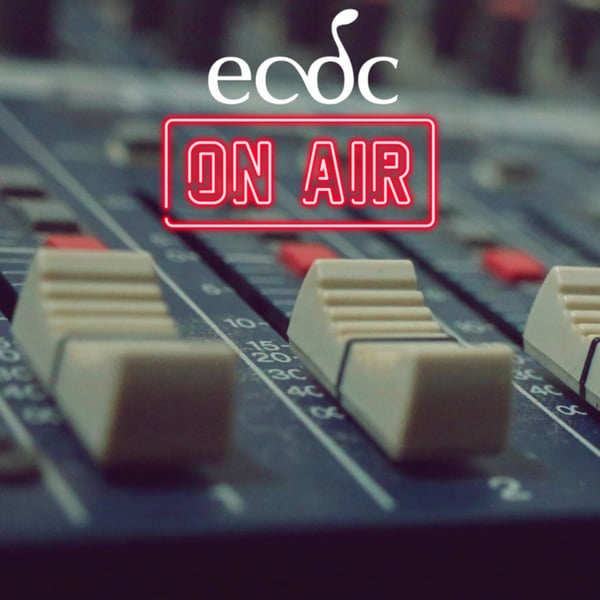Episode 51 - Gerjon Ikink - Exploring the Future of Health
ECDC: On Air
European Centre for Disease Prevention and Control
5 • 3 Ratings
🗓️ 10 April 2024
⏱️ 19 minutes
🧾️ Download transcript
Summary
Public health institutes across Europe increasingly recognise the value of examining public health trends and imagining what the future may look like according to different scenarios.
In this episode, Gerjon Ikink, ECDC principal expert on public health foresight, explains what foresight is, why it is important in public health, and how it can be translated into concrete action to prepare for future infectious disease threats.
For more information about ECDC in general please visit ecdc.europa.eu or follow us on social media.
Transcript
Click on a timestamp to play from that location
| 0:00.0 | ECDC on air, the podcast of the European Center for Disease Prevention and Control. |
| 0:09.0 | Keeping up to date with European epidemiology. |
| 0:14.5 | Hello, my name is Nicholas and I'm your host for today's episode of ECDC on Air, |
| 0:19.3 | which is the podcast for the European Center for Disease Prevention and Control. Today I have with me, Gerion Ikink, who is |
| 0:25.8 | ECDC's principal expert on public health foresight. Gerion, can you start off by explaining |
| 0:30.9 | what is meant by foresight and why is it important? Sure. So, foresight, in a nutshell, is a systematic |
| 0:37.4 | participatory and well-informed way of |
| 0:40.1 | exploring, anticipating, and even shaping the future. It's a combination of using evidence, |
| 0:45.4 | expertise, interaction between these experts and creativity, bringing them together so you |
| 0:51.2 | mitigate the blind spots and the biases they have. So it's a sort of an umbrella |
| 0:55.6 | term for multiple forward-looking methods and they all have different kinds of approaches |
| 1:00.4 | and also all kinds of different applications. But they're all structured and they all usually |
| 1:06.6 | look at least 10 years ahead. Normally it is qualitative more than quantitative. We're using |
| 1:13.0 | it in a functional way, so to detect threats or find ways of innovating or shaping strategy. |
| 1:19.8 | And I think what's quite important is to mention that it shouldn't be mixed up with forecasting, |
| 1:24.9 | because forecasting is really using data from the past to extrapolate |
| 1:29.2 | to the future using some assumptions. But that basically the assumption is that the future is |
| 1:33.9 | something like the past and we know that actually that's not true. And also foresight is not |
| 1:39.7 | prediction. It's really about exploring possible futures and their implications together with |
| 1:44.8 | diverse expertise, but we're not claiming that we're predicting anything. Can you explain a little |
| 1:51.0 | bit more concretely? How is it being carried out? Because there's no data on the future, as the |
| 1:56.0 | future hasn't happened yet, we are looking at change in foresight. So we're identifying change, what kind of change |
... |
Please login to see the full transcript.
Disclaimer: The podcast and artwork embedded on this page are from European Centre for Disease Prevention and Control, and are the property of its owner and not affiliated with or endorsed by Tapesearch.
Generated transcripts are the property of European Centre for Disease Prevention and Control and are distributed freely under the Fair Use doctrine. Transcripts generated by Tapesearch are not guaranteed to be accurate.
Copyright © Tapesearch 2025.

